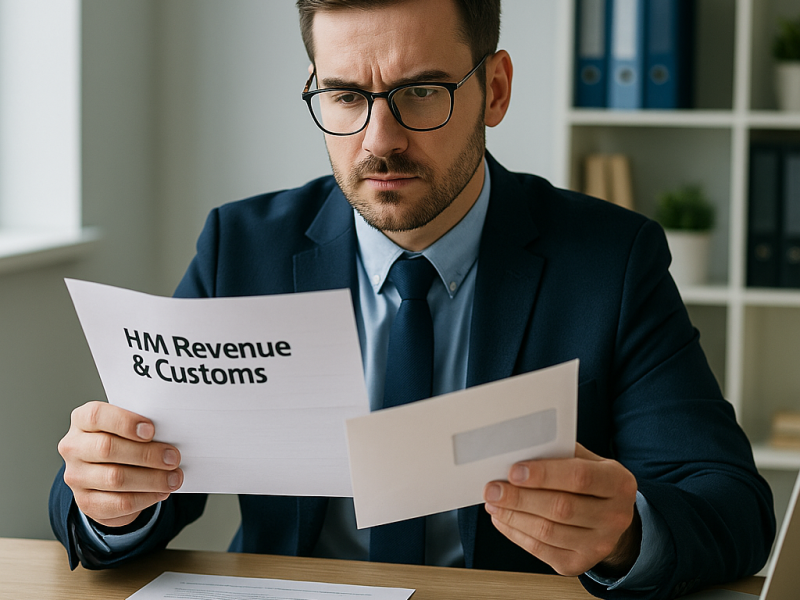
If HMRC contacts you about a compliance check—whether you’re an individual, landlord, sole trader or small business—it’s important to understand what it means, how you should respond, and how a tax expert through CheckTheBooks can help you navigate the process with confidence.
What is a Compliance Check?
A compliance check is where HMRC reviews your tax affairs to ensure you’re paying the right amount of tax at the right time, and claiming reliefs or allowances correctly.
Reasons for a check can include:
- Discrepancies or unusual figures on a tax return.
- Large claims for rebates or refunds that appear inconsistent.
- Random selection of returns or risk-based prompts by HMRC.
Receiving notification of a compliance check doesn’t necessarily mean wrongdoing — it may just be HMRC exercising its rights to check accuracy and fairness.
The Process & What You Should Do
Once HMRC initiates a check:
- You’ll receive notification (typically by letter) detailing what part of your tax affairs is under review.
- HMRC may request information and documents (records, receipts, details) or may arrange a visit to your business premises or home.
- You are expected to continue filing returns and paying tax as normal during the check.
- If you cooperate fully and provide information promptly, this can reduce the overall disruption and possibly lower any penalty.
- If you believe the check should not proceed, you can raise your concerns via the officer handling your case.
Potential Outcomes & Penalties
Depending on what HMRC finds:
- If everything is correct: the check will close and no further action will be taken. GOV.UK
- If an under-payment of tax is identified: you’ll be required to pay the tax owed plus interest.
- HMRC may impose a penalty if the error is due to careless or deliberate behaviour. Your level of cooperation may reduce the penalty.
- If you disagree with HMRC’s decision, you have rights to request review or appeal.
How a Tax Expert via CheckTheBooks Can Help
Dealing with a compliance check can feel stressful and complex—but you don’t need to go through it alone. Here’s how a verified expert on CheckTheBooks can support you:
- Review your current tax records and affairs: An expert will check your documentation, accounting systems and returns to identify any areas of concern pre-emptively.
- Manage correspondence and liaise with HMRC: They can act on your behalf (once authorised) to handle documents, questions and negotiations.
- Advise on response strategy & timing: They’ll guide on what to submit, timeframes, and how to prioritise items to reduce risk and impact.
- Help you prepare for visits or meetings: If HMRC visits your premises or requests a meeting, your expert can advise on what to expect and how to present your information.
- Handle outcome review & appeal support: If HMRC finds issues, your expert can help calculate liabilities, negotiate payment terms, and advise on appealing decisions where appropriate.
- Improve your ongoing compliance systems: After the check, an expert can help you strengthen your record-keeping, accounting practices and internal controls to reduce future risk.
Why It’s Better to Act Early
- The sooner you get professional support after you’re contacted by HMRC, the more options you have and the more cooperative you can appear — this can help reduce penalties.
- Being proactive shows good faith and may work in your favour in HMRC’s assessment of your case.
- Having expert advice helps you avoid costly mistakes, unnecessary escalation and disruption.
Final Thoughts
Getting a letter from HMRC about a compliance check doesn’t automatically mean you’re in trouble — but it does signal that your tax affairs are under scrutiny. By understanding the process, responding promptly and getting expert support, you can address the issue calmly and protect your interests.
If you’d like support from a verified tax professional experienced in helping clients through HMRC compliance checks